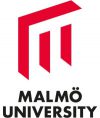New publication, available from here:
This article explains the implications and benefits of founding transdisciplinary collaborations of knowledge production in critical realism. We call such equal partnerships of researchers and practitioners knowledge alliances. Drawing on the distinction between the referent to which we refer (the object that our research is about) and our references (our research about this object), we show that practitioners can contribute to the process of knowledge production by providing access to referents and producing references but also by achieving societal relevance. In order to accomplish excellence, knowledge production should be organized in ways that engage different types of knowledge in a constructive interplay and use the respective strong points of researchers and practitioners. Abduction and retroduction, two modes of inference vital to critical realism, are particularly inclined to benefit from involving practitioners in knowledge production. We call such an approach potential-oriented and put it in contrast to problem-orientation and the empiricism of evidence-based research and policy-making.
Stigendal, Mikael & Novy, Andreas (2018). Founding transdisciplinary knowledge production in critical realism: implications and benefits. Journal of Critical Realism 17:3, 203-220

